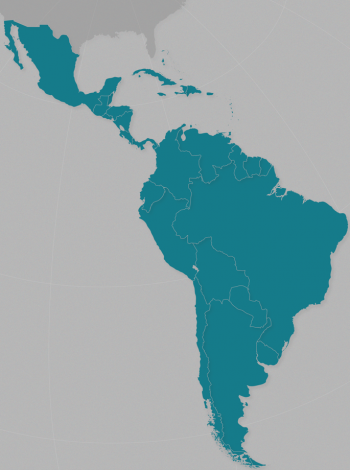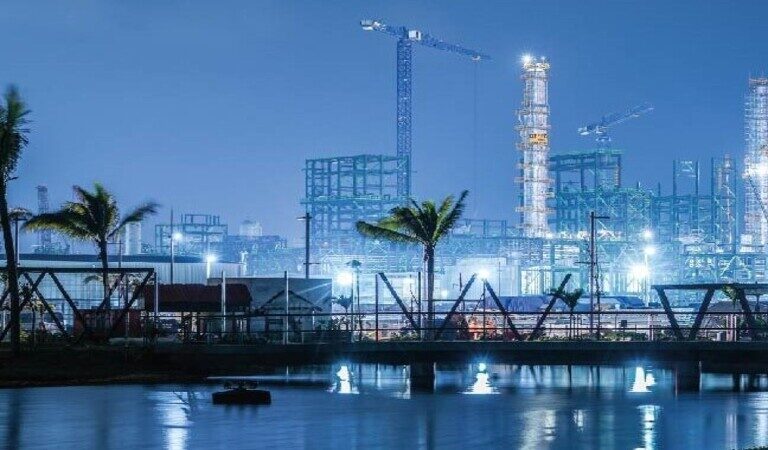- On June 2, in addition to president, Mexico will choose all 500 deputies in the lower house of Congress and all 128 seats in the Senate.
- The main presidential candidates are left-wing Claudia Sheinbaum and right-wing Xóchitl Gálvez, with center-left Jorge Máynez representing a third, dark-horse option.
- Both Sheinbaum and Gálvez want to invest more in renewable energy, but disagree about some controversial infrastructure projects.
MEXICO CITY — Mexico will hold elections on June 2 that are likely to shape the country for years to come. In addition to president, all 500 deputies in the lower house of Congress and all 128 seats in the Senate are on the ballot. The winners will have to reckon with a host of pressing environmental concerns that range from renewable energy and mining to access to clean water and infrastructure.
The main presidential candidates are left-wing Claudia Sheinbaum and right-wing Xóchitl Gálvez, with center-left Jorge Máynez representing a third, dark-horse option. One of them will take over from the polarizing left-wing populist President Andrés Manuel López Obrador (AMLO), who isn’t eligible to run again.
AMLO’s presidency had no shortage of scandals, and much of the criticism he received had to do with the environment. He favored fossil fuels over renewal energy, building new refineries and prioritizing state-owned oil and gas giant Pemex over private wind and solar power companies. He bet on huge infrastructure projects — trains, pipelines, interoceanic corridors — that angered Indigenous communities and skirted basic environmental regulations.
Meanwhile, the country is in the midst of a water crisis that threatens to leave millions of residents — both in major cities like Mexico City and rural areas like Oaxaca — without access to potable water. The problem stems from a lack of sanitation infrastructure and management, but it’s also a climate change and conservation problem. Droughts and desertification have exacerbated the crisis.
The part about rural Oaxacan communities losing access to water is very misleading, given that soft drinks corporations (Coca-Cola, but some others, too) have a documented history of appropriating local water while getting people hooked on their products.
I lived in the CDMX when sheinbaum was city president. She's more of a socdem technocrat than a radical, so whoever wins the election, AMLO's projects will likely not see a lot of continuation, for better or for worse. AMLO has been kind of shit for environmental issues -as mentioned in the article- and indigenous peoples' rights, ignoring them while appropriating their culture to signal their support for him.
prioritizing state-owned oil and gas giant Pemex over private wind and solar power companies.
Why can’t there be state owned wind and solar company?

Because AMLO relied on oil revenues for a lot of his social spending. Mexico's -pretty bad, but better than nothing- welfare state gets a ton of funding from PEMEX, which has been an expectarion and a given ever since lázaro cárdenas nationalized it.
But again why not create state owned solaventomexico, and use it to buy/make installations, you can make it small, but existing structure will make for easier expansion later. And why the duality here is either or? Spending on private solar farm obviously is worse for the government compared to state owned whatever
I agree with you 100%, plus if done under the PEMEX umbrella it would've been a really good move, too. And you're right about the false dichotomy between nationalized oil company and private partnership with renewables, I blame it a bit on amlo being very much an old school politician with his priorities set on wealth transfer and social support, and on the fact that getting a state-owned project going in the 6 years of his term with the neoliberal hellhole that's Mexican internal politics, and the opposition he was facing at every turn is very difficult. I suppose he went for the easier wins.
because the main reason its that way is nacionalism, PEMEX is very important for mexican nacionalism since it was the first big show of sovereignty since independence and Oil was used by the PRI for decades as a form of legitimacy, the last presidency tried to fully privatize the oil industry and AMLO use defending PEMEX as a big policy during his campaign.
there is also the fact that PEMEX mades up aroung 50% of the goverments budget, ands its really needed to pay for things like the Tren Maya, the new oil refinery, the airport in mexico city and many other big infraestructure proyects the gob promise, so with that there is no money left for push for solay and wind, also most of the solar panels come from China and that has pissed off the amerikkkans a couple of times so that could be another reason of why not solar.



